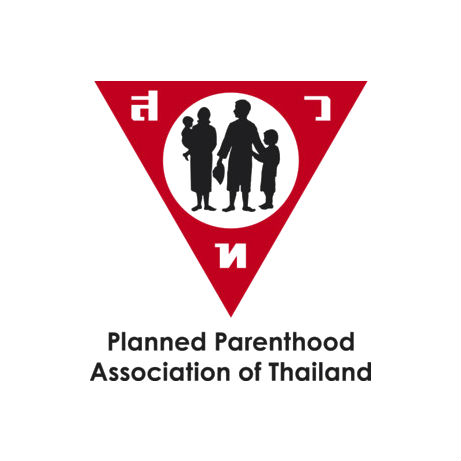

| 31 March 2016
Planned Parenthood Association of Thailand
The Planned Parenthood Association of Thailand (PPAT) Under the Patronage of HRH the Princess Mother has been in operations for more than 50 years. The primary aim of PPAT is to support people living in Thailand, of all ages, to have access to sexual and reproductive health and rights (SRHR) for their better quality of life. PPAT operations include family planning, HIV/AIDS prevention, and increasing the accessibility of sexual and reproductive health services to groups who are challenged to have access to SRHR. We strive to adapt to the changes in society, such as reproductive health operations for children and young people, the elderly development for the transition to the aging society, and the maternity promotion in the period of low birth rate which affected the population equilibrium. Our work compliments and supports government policies. We collaborate with the public and government sectors to bring about change in society. PPAT has initiated and developed several creative methods and social innovations that change and improve society in many ways. All of this helps the people including people living in hard-to-reach areas to be able to access appropriate and friendly reproductive health services. We currently operate through 47 service delivery points in both urban and rural areas to provide SRHR services to people with average 179,004 clients every year. These include 10 permanent clinics and 12 mobile units, and a network of community-based distributors/community-based services (CBDs/CBSs). With more challenges awaiting in the future, PPAT considers human rights, human dignity, and diversity of ideas, beliefs, and identities in creating programs which will bring about change in society and improve the quality of life for those living in Thailand. These programs combined with other sectors, will impact Thailand’s growth and access to SRHR health services.

| 31 March 2016
Planned Parenthood Federation of Nigeria
Planned Parenthood Federation of Nigeria (PPFN) is a national healthcare provider and a leading advocate of sexual reproductive health and rights (SRHR) in Nigeria. We have been at the vanguard of delivering comprehensive SRHR information and services, especially to poor, marginalized, socially excluded and underserved groups for over 55 years. Building on this history, PPFN is committed to mobilizing civil societies and governments to improve the legislative and policy environment for SRHR; and empowering people, especially young women, and girls, to act freely on their sexual reproductive health and rights by delivering comprehensive sexuality education and information through a variety of channels. At the same time, our focus is on expanding access to quality integrated SRH services for all, including those in humanitarian settings. An integral component of our work has been the establishment of networks and partnerships with a broad range of key stakeholders including young people, community and faith leaders, private sector practices and the government at national and local levels to ensure a wide-scale and sustainable delivery of quality SRHR information and services. PPFN delivers services through a network of 225 service delivery points and 380 community health workers located in facilities, communities and at outreach centres across the 36 states of Nigeria, including the Federal Capital Territory. Also, PPFN being a major contributor of SRH services in Nigeria provided a total of 48.4 million SRH services in 2020, with about 38 per cent of these services accessed by young people aged less than 24 years. Of the total SRH services delivered, 23.3 million services were provided directly by PPFN owned facilities, community-based distribution agents and outreach teams and a further 25.1 million services enabled through partnerships with public and private facilities. Annually, PPFN delivers services to an average of 10 million clients, including over 110,000 people who received SRH services in a humanitarian setting. In 2020, PPFN delivered services to an estimated 9.4 million poor and vulnerable users. This represented the majority of all our service users (82 per cent).







